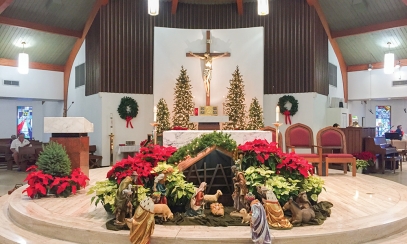
Be Not Afraid: Overcoming Confession Anxiety
Getting your Trinity Audio player ready...Question: Father Joe, it’s been over a year since my last confession. I deeply regret my past actions and feel a strong sense of guilt. However, I’m finding it hard to go to confession because I’m embarrassed and ashamed of some of the things I did. I’m not sure how to start. Could you please give me some advice on how to get over my fear and anxiety about going to confession?
Question: Father Joe, it’s been over a year since my last confession. I deeply regret my past actions and feel a strong sense of guilt. However, I’m finding it hard to go to confession because I’m embarrassed and ashamed of some of the things I did. I’m not sure how to start. Could you please give me some advice on how to get over my fear and anxiety about going to confession?
Father Joe: Most Catholics, even priests, have apprehension about confession. It is difficult to humbly admit our sinful habits and desires. Fear worsens the longer we avoid reconciliation. Therefore, it is vital to overcome fear and receive the healing grace of confession frequently.
Addressing our fears requires thinking differently. The Church prescribes frequent confession because it is the wellspring of grace and restores baptismal innocence. Sacramental reconciliation is about experiencing God’s mercy, not fixating on sin. We must trust that bringing our offenses into the light will break sin’s grip over us. The Devil wants Christians to keep sins secret, so that tormented by shame, we despair. That is why it is essential to recall that in confession we share Christ’s victory over sin.
Here are some tips to overcome anxiety about confession:
- Setting monthly confession as a goal is a proactive step that can help avoid the negative effects of delaying confession. By scheduling a monthly appointment with Jesus to confess our serious sins, we nurture our spiritual health. If, with God’s grace, you go a month without serious sin, use the opportunity to devoutly confess habitual venial sins.
- When anxiety about confession arises, being gentle with yourself is crucial. You have nothing to fear. Recall that the Church is a community of sinners, and no one’s sins are uniquely shameful. Everyone is challenged by the same temptations and the same deadly sins. Nothing confessed will shock the confessor. Trust that a humble and contrite confession will bring abundant blessings.
- Learn to name your sins in plain language and not go into unnecessary details. Confessors need to know the kind and number of our sins; all else is irrelevant, or, as we say, “TMI.” Recognize that discipleship requires humbly admitting sins, learning genuine contrition, and allowing Christ through the priest to absolve our sins. Refreshed by the sacrament, we can begin again to fervently pursue virtue.
- Make an Act of Contrition at bedtime and before receiving Communion. Consider the sins you have committed and promise to confess all serious sins. This habit will prepare you to make a good confession and to be grateful to God for the opportunity to experience his mercy.
- Pray to the Holy Spirit for courage and guidance to make a humble and contrite confession. The Holy Spirit leads us with gentleness, inspiring true repentance and new resolve. Let the Holy Spirit guide your conscience to identify serious sins and avoid scrupulosity.
Be not afraid, embrace frequent confession as the path to spiritual health, and be assured of God’s mercy.
Many parishes hold Lenten penance services. Experience God's mercy and love through the sacrament of reconciliation this Lent. Visit www.dosp.org/penanceservices to find dates and times for parishes throughout our five counties.



